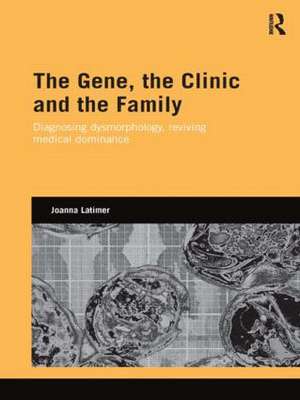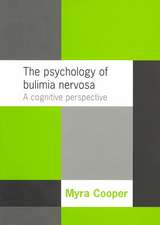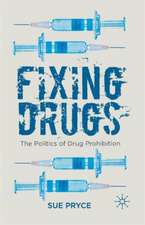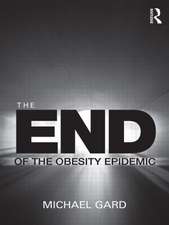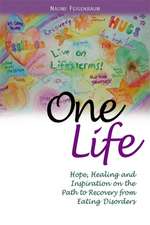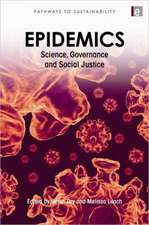The Gene, the Clinic, and the Family: Diagnosing Dysmorphology, Reviving Medical Dominance: Genetics and Society
Autor Joanna Latimeren Limba Engleză Paperback – 4 mar 2015
Against current thinking that proselytises the rise of laboratory science, Professor Latimer shows how the genetic clinic is at the heart of the revolution in the new genetics. Tracing how work on the abnormal in an embryonic genetic science, dysmorphology, is changing our thinking about the normal, The Gene, the Clinic, and the Family charts new understandings about family, procreation and choice. Far from medicine experiencing the much-proclaimed ‘death of the clinic’, this book shows how medicine is both reasserting its status as a science and revitalising its dominance over society, not only for now but for societies in the future.
This book will appeal to students, scholars and professionals interested in medical sociology, science and technology studies, the anthropology of science, medical science and genetics, as well as genetic counselling.
| Toate formatele și edițiile | Preț | Express |
|---|---|---|
| Paperback (1) | 335.00 lei 43-57 zile | |
| Taylor & Francis – 4 mar 2015 | 335.00 lei 43-57 zile | |
| Hardback (1) | 1232.56 lei 43-57 zile | |
| Taylor & Francis – 27 iun 2013 | 1232.56 lei 43-57 zile |
Din seria Genetics and Society
-
 Preț: 310.96 lei
Preț: 310.96 lei - 8%
 Preț: 382.70 lei
Preț: 382.70 lei - 21%
 Preț: 246.92 lei
Preț: 246.92 lei -
 Preț: 389.38 lei
Preț: 389.38 lei -
 Preț: 480.62 lei
Preț: 480.62 lei -
 Preț: 416.22 lei
Preț: 416.22 lei - 5%
 Preț: 439.47 lei
Preț: 439.47 lei -
 Preț: 389.38 lei
Preț: 389.38 lei -
 Preț: 452.35 lei
Preț: 452.35 lei -
 Preț: 277.99 lei
Preț: 277.99 lei - 5%
 Preț: 103.26 lei
Preț: 103.26 lei -
 Preț: 473.20 lei
Preț: 473.20 lei -
 Preț: 416.22 lei
Preț: 416.22 lei - 18%
 Preț: 1056.80 lei
Preț: 1056.80 lei -
 Preț: 409.48 lei
Preț: 409.48 lei -
 Preț: 483.70 lei
Preț: 483.70 lei -
 Preț: 413.37 lei
Preț: 413.37 lei -
 Preț: 364.00 lei
Preț: 364.00 lei -
 Preț: 389.38 lei
Preț: 389.38 lei - 16%
 Preț: 260.13 lei
Preț: 260.13 lei -
 Preț: 415.29 lei
Preț: 415.29 lei -
 Preț: 108.91 lei
Preț: 108.91 lei -
 Preț: 263.84 lei
Preț: 263.84 lei -
 Preț: 411.04 lei
Preț: 411.04 lei - 15%
 Preț: 258.70 lei
Preț: 258.70 lei
Preț: 335.00 lei
Preț vechi: 352.63 lei
-5% Nou
Puncte Express: 503
Preț estimativ în valută:
64.11€ • 66.68$ • 52.93£
64.11€ • 66.68$ • 52.93£
Carte tipărită la comandă
Livrare economică 14-28 aprilie
Preluare comenzi: 021 569.72.76
Specificații
ISBN-13: 9781138858817
ISBN-10: 1138858811
Pagini: 238
Ilustrații: 11 black & white illustrations, 10 black & white halftones, 1 black & white line drawings
Dimensiuni: 156 x 234 x 19 mm
Greutate: 0.36 kg
Ediția:1
Editura: Taylor & Francis
Colecția Routledge
Seria Genetics and Society
Locul publicării:Oxford, United Kingdom
ISBN-10: 1138858811
Pagini: 238
Ilustrații: 11 black & white illustrations, 10 black & white halftones, 1 black & white line drawings
Dimensiuni: 156 x 234 x 19 mm
Greutate: 0.36 kg
Ediția:1
Editura: Taylor & Francis
Colecția Routledge
Seria Genetics and Society
Locul publicării:Oxford, United Kingdom
Public țintă
Postgraduate, Professional, and UndergraduateCuprins
Preface. Part I: Introduction and Background 1. Introduction 2. The Clinic as the Site of Science Part II: The Gene and Medicine 3. Medicalizing Science 4. The ‘Translation’ of Growth and Form 5. Shaping the Science of Growth and Form Part III: Visualizing the Clinic 6. Creating Clinical Pictures 7. Rebirthing the Clinic 8. Dysmorphology’s portraits Part IV: The Family and Identities 9. Genes, Bodies, Persons 10. ‘The Family’ and Medicine 11. Transforming Family Part V: Conclusions 12. Summary and Discussion
Notă biografică
Joanna Latimer is Professor of Sociology at Cardiff University School of Social Sciences, and Professor in the ESRC Centre for the Economic and Social Aspects of Genomics. She has been researching medical knowledge and practice ethnographically for 30 years. Professor Latimer is editor of Sociology of Health and Illness, a member of the board of The Sociological Review, and chair of the Cardiff Ageing, Science and Older People Network.
Recenzii
'Latimer’s book is a very timely and important contribution... proposing we should take greater care in understanding how the new genetics is changing the relationship between medicine and science, between medicine, science and society and between medicine, science, society and the individual.'— Janice McLaughlin, Newcastle University, Sociology of Health & Illness
Descriere
This book moves the focus from the bedside to the clinic in this in-depth study of genetic medicine. Against current thinking that proselytises the rise of laboratory science, Professor Latimer shows how the genetic clinic is at the heart of the revolution in the new genetics. Tracing how work on the abnormal in an embryonic genetic science, dysmorphology, is changing our thinking about the normal, The Gene, the Clinic, and the Family charts new understandings about family, procreation and choice.
